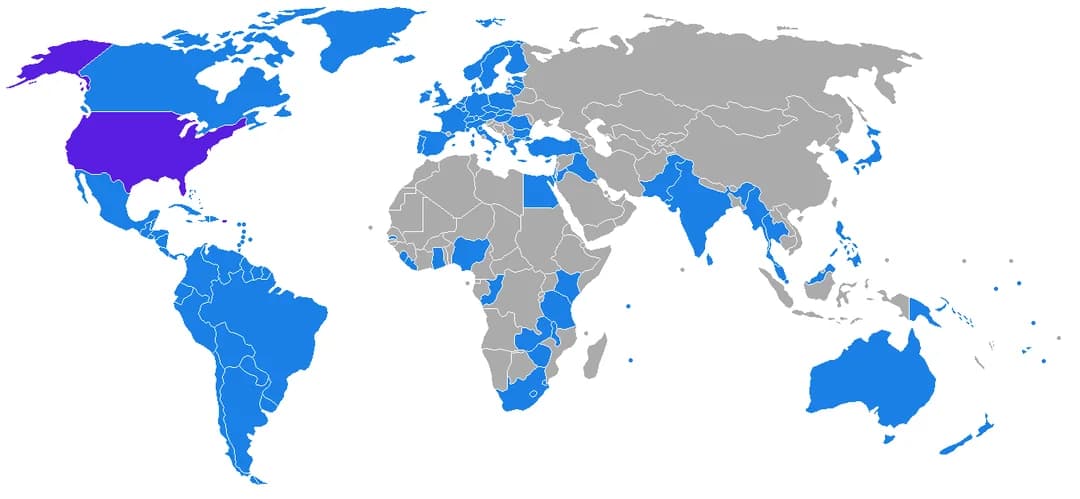Extradition is the process of transferring a person accused or convicted of a crime from one country to another. It is carried out on the basis of extradition treaties, which regulate the conditions and procedure for the transfer. There are many countries in the world with which the United States has entered into such agreements, but there are also those that do not have such agreements. Let’s look at what an extradition treaty is, why some countries do not have such agreements with the United States, and what implications this has for international law and justice.
What Is an Extradition Treaty
An extradition treaty is a formal agreement between two countries that sets the legal framework for the transfer of individuals accused or convicted of crimes. These treaties define the list of crimes subject to extradition, as well as the conditions under which it can be carried out. Extradition is usually used in cases of serious crimes such as terrorism, drug trafficking or financial fraud.
The main purpose of these treaties is to ensure international cooperation in the fight against crime and to avoid evasion of justice. Interpol notifications, which are classified by color and serve different purposes, perform a vital function in the international search for criminals. You can find out more about this in the article about Interpol notice color.
Reasons Some Countries Lack Extradition Agreements
Not all countries have extradition treaties with the United States, and there are several reasons for this. Some states strive to maintain their sovereignty and do not want to give other countries the opportunity to influence their internal affairs. Political considerations also play an important role: countries may reject such agreements due to disagreements with the United States on human rights issues or differences in legal systems. In some cases, countries fear that extradition could be used for political purposes, which is especially true for states with a history of political repression or unstable internal situations.
Examples of Countries Without US Extradition Treaties
There are countries with no extradition treaty with US, making them a potential safe haven for fugitives from American justice.

For example, countries such as Russia, China and Saudi Arabia do not have formal extradition treaties with the United States. These also include Iran, North Korea and Cuba. Some smaller countries, such as the Maldives or Vanuatu, are also not bound by such agreements. This does not mean that those hiding in these countries are completely protected. However, the absence of a formal agreement greatly complicates the process of their transfer.
Implications of No Extradition Treaties
The absence of an extradition treaty has both legal and political consequences. On the one hand, this allows some individuals to evade justice, which undermines the effectiveness of the international fight against crime. On the other hand, such countries may use the absence of agreements as a tool of diplomatic pressure or a way to maintain an independent foreign policy. However, this creates risks for the countries themselves, as they can become havens for international criminals. This may affect their reputation and relations with other states.
Can Extradition Happen Without a Treaty
Extradition without a formal treaty is still possible, but it becomes much more difficult. In such cases, states may rely on the principle of reciprocity or on special bilateral agreements concluded for specific cases. In addition, extradition can be carried out through international organizations or within the framework of special diplomatic arrangements. However, such cases are rare and require significant efforts on the part of both countries. This means that even in the absence of a treaty, justice can be achieved, but the process will be longer and more complex.
Extradition treaties therefore play an important role in international law and cooperation. However, their absence does not always mean the impossibility of justice. It rather highlights the complexity of international relations and the need for a careful balance between law, sovereignty and diplomacy.
